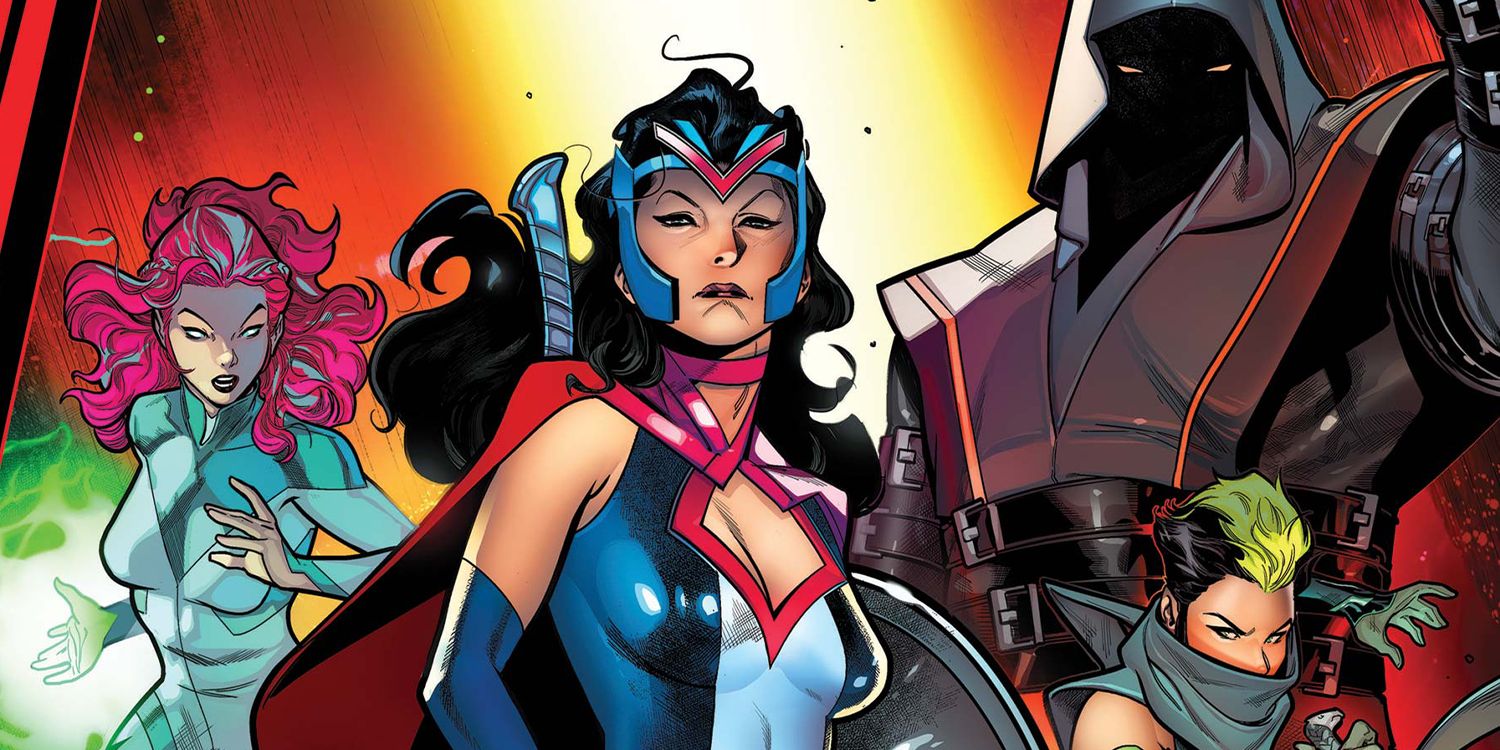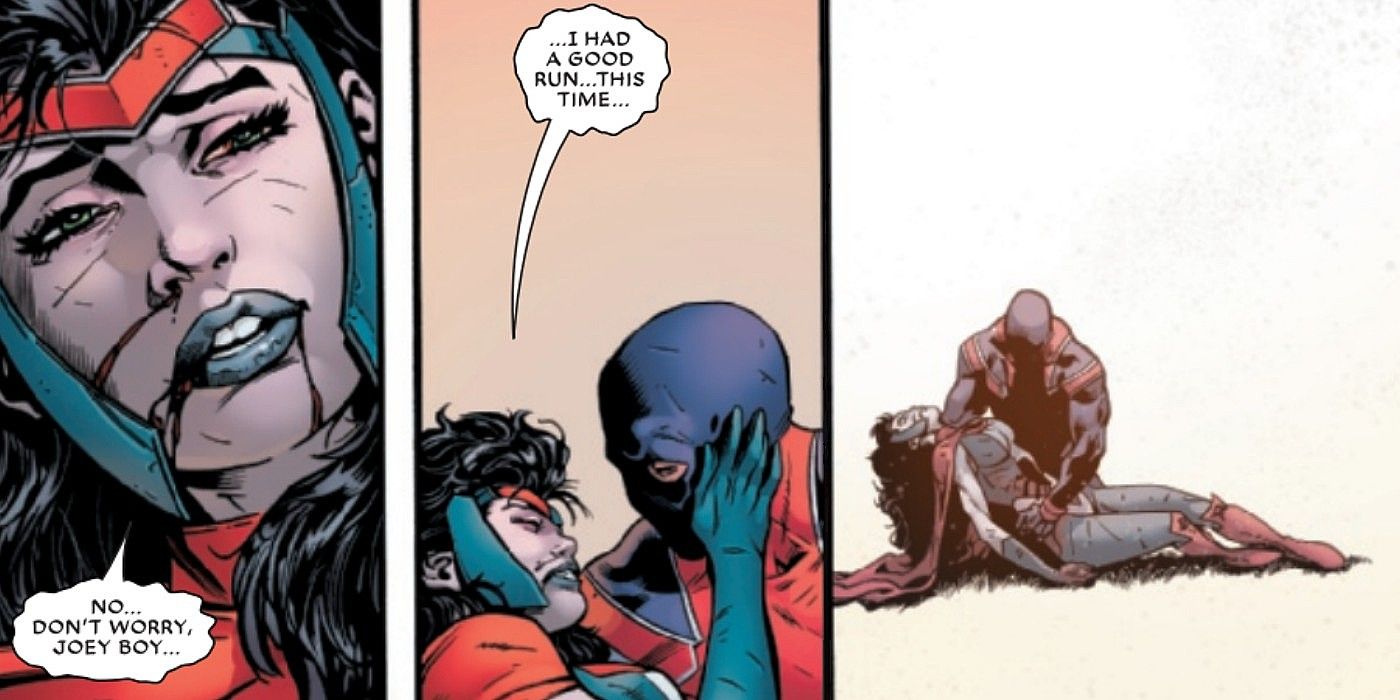Warning: Spoilers for The Union #2 are ahead!
The Union, Marvel's newest superhero team, are off to a rough start. With the death of their leader, Britannia, at the end of The Union #1, British-based heroes Union Jack, The Choir, Kelpie, and Snakes are forced to reckon with the loss of the only glue keeping them together in The Union #2 (written by Paul Grist, pencils by Andrea Di Vito, inks by Le Beau Underwood, colors by Nolan Woodard, and letters by VC's Travis Lanham). Since Britannia's death, leadership of The Union has fallen into the hands of English hero, Union Jack (Joseph Chapman), who does not share Britannia's popularity amongst either the British public or his teammates. While tragic, the death of Britannia is pushing The Union to become a superhero team made for an uncertain, post-Brexit world, whether they like it or not.
Formed by the British government, The Union have been seen as Marvel's response to Brexit. Britannia, The Choir (Wales), Kelpie (Scotland), and Snakes (Northern Ireland) are all new heroes, while Union Jack was first created in 1976 by Roy Thomas and Frank Robbins. The team have debuted in the midst of the King in Black storyline, with Britannia having been killed by one of Knull's symbiote dragons in The Union #1.
An emerging theme in The Union is the splintered state of politics and national morale in the United Kingdom, and Britannia's death exacerbates this condition. Part of what made Britannia so popular was that she was a very old, legendary figure who appealed to a sense of nostalgia and unity. As The Union #2 details, Britannia was a relic from a bygone era, embodying old fashioned, sword and shield heroism that is ultimately incongruent with the contemporary world. Britannia's values inspired Kelpie, The Choir, and Snakes to join The Union, but with Union Jack now the leader, they have since abandoned the team.
Britannia's death and the subsequent dissolution of the team evidences the instability of nostalgic heroism, and it is this force that is The Union's greatest enemy. The Union #2 showed that the United Kingdom's heroic past is no longer its present. The greatest challenge facing these heroes is not Knull and the King in Black storyline, but a question of what contemporary British heroism even is in a post-Brexit world.
So far, Union Jack's turn as the leader of The Union is the perfect vessel for the series to examine an existential crisis such as this. Joseph Chapman himself is the first iteration of Union Jack from a working class, non-aristocratic background. Originally, Union Jack was a heroic persona passed down in the Falsworth family, and Chapman broke the hero out of his previous aristocratic mold. Contrary to Britannia, Union Jack represents a new crop of British superheroes not bogged down by nostalgic mythology. Rather than being a centuries-old hero and dragon slayer, Union Jack is a much more accessible hero to readers because he is essentially just a well-trained man in a costume from humble origins. He is their best shot at forging a new sense of the British heroic.
The United Kingdom has entered an unprecedented time, throwing into question the meaning of the Union Jack that dons Joseph Chapman's costume. If The Union is to survive as a team, they must free themselves from an impulse to reach into the past in order to feel comfortable in the present. And with the greater threat of Knull looming above all of them, The Union must devise a solution most expediently.


